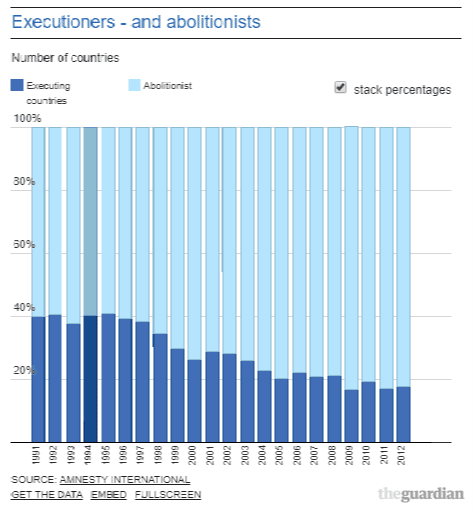
On 02 August, Pope Francis issued a change to the Roman Catholic catechism. In the official release, the change in the Church’s position is quite clear.
Consequently, the Church teaches, in the light of the Gospel, that “the death penalty is inadmissible because it is an attack on the inviolability and dignity of the person”, and she works with determination for its abolition worldwide.
However, it is important to look at the reasoning alluded to by the Pope to issue this essentially ex-cathedra statement. Three reasons are given by Pope Francis for the change.
- Pope Francis acknowledges that “… the death penalty … was long considered an appropriate response to the gravity of certain crimes and an acceptable … means of safeguarding the common good.
- He then states that there is, “… an increasing awareness that the dignity of the person is not lost even after the commission of very serious crimes.”
- He alludes to the, “… significance of penal sanctions imposed by the state,” by which I assume he means the use of penal sanctions to impose the state’s will, the use of penal sanctions in a biased manner, and the use of penal sanctions in a manner imperfect enough that there is a reasonable probability of the innocent being convicted of a capital crime.
- Finally, he states that in the modern era we have developed, “… more effective systems of detention … which ensure the due protection of citizens but … do not definitively deprive the guilty of the possibility of redemption.”
The last one, by itself, should have been sufficient to ensure that the death penalty was on its last legs. And, in fact, there has been a slow, but steady drop in the number of countries that still have the death penalty, with an even lower number of countries actually carrying out the death penalty.

By 2012, we were the only industrialized country that ranked in the top 10 executioner countries between 2007-2012. We shared top ten billing with China, Iran, Saudi Arabia, Iraq, United States, Pakistan, Yemen, North Korea, Vietnam, and Libya. That is some interesting company that we keep!
But Pope Francis’ point is one that should appeal to Catholics, Orthodox, and Protestants. If one is left alive, it gives them a chance for repentance. Given modern penal systems, there is a little-increased danger to the populace by choosing to keep people alive in the hope that they may repent in the future. That increased danger may not truly justify the application of the death penalty. For the Orthodox, the appeal to the dignity of the person, the Image of God that has not been lost in humans, however damaged the likeness to God might be, should also be theologically appealing.
Note also that Pope Francis did not state that prior ideas were wrong. He simply stated that in the light of changing circumstances, there is no longer a good justification for the death penalty.
The idea of lifetime or long-term imprisonment was simply not present in Old Testament Scripture. All punishments were rather immediate. It is true that there were prisons in the New Testament Roman system, but they were considered to be more temporary affairs. People sentenced to longer terms were either sold as slaves or banished or sent to work in places such as to mines to which the Apostle John was sent.
This is important to note because those who cite the Old Testament for support are not often willing to acknowledge that then all sentences should be commuted to either death or some form of payment or servitude. I am often surprised at how death penalty supporters most often also are against any penal system that has almost no imprisonment, such as the Old Testament. Under such a system, while our capital punishment rate would be higher, our imprisonment rate would be almost non-existent. The very existence of our high imprisonment rate is already a system different than that found in the theocratic governments of the Old Testament.
Modern penal systems allow for an option other than capital punishment. That is what Pope Francis points out. What also needs to be pointed out is that we have become a society that is fixated on putting someone away rather than using the Old Testament system of fines or community servitude. Our first response is to lock them up. Our second response is to find a reason why it should be life imprisonment. Our third response is to give them no chance when they get out of jail because we cannot trust jailbirds. There is no Scriptural support for that stance.
It will be interesting to see how American Catholics respond. Given that most of the world’s bishops and cardinals come from non-death-penalty countries, Pope Francis is unlikely to be overturned. Given that it is part of the Catechism, it is now part of the required faith. Nevertheless, I suspect that there will be American Catholics who will try to find casuistic reasons why what the Pope has said is not truly ex-cathedra, even though he will have episcopal support.
Nevertheless, it is good to have it clarified that being pro-life today means being anti-death-penalty.
One final note: the subject of war is not dealt with in this revision of the Catholic Catechism. I doubt there will be a future statement of pacifism. The reason is that war really is a special category. We should never wage war. But, sometimes the doctrine abbreviated as the “lesser of two evils” allows for war as an evil that has better results than not-war.



Leave a Reply